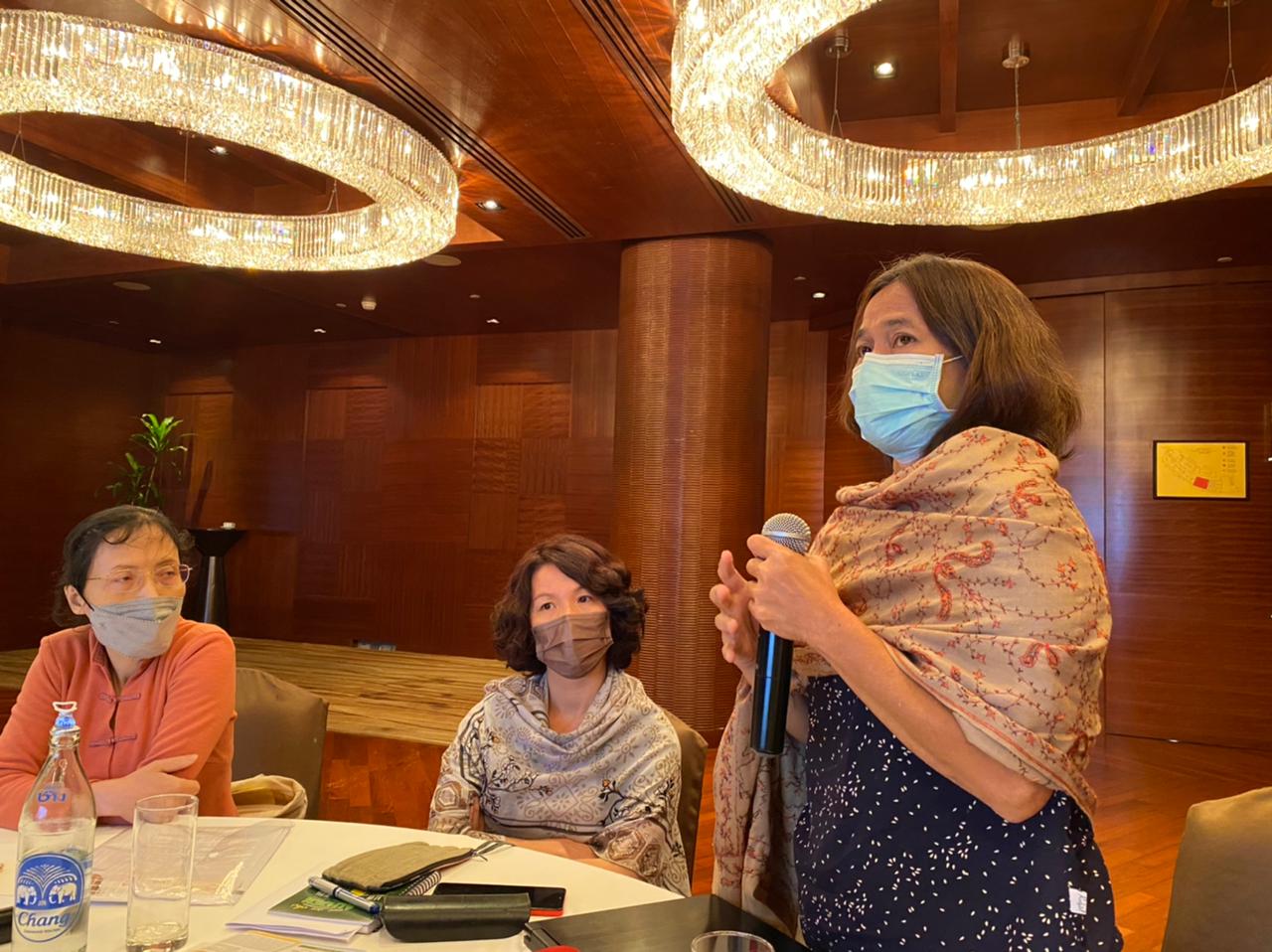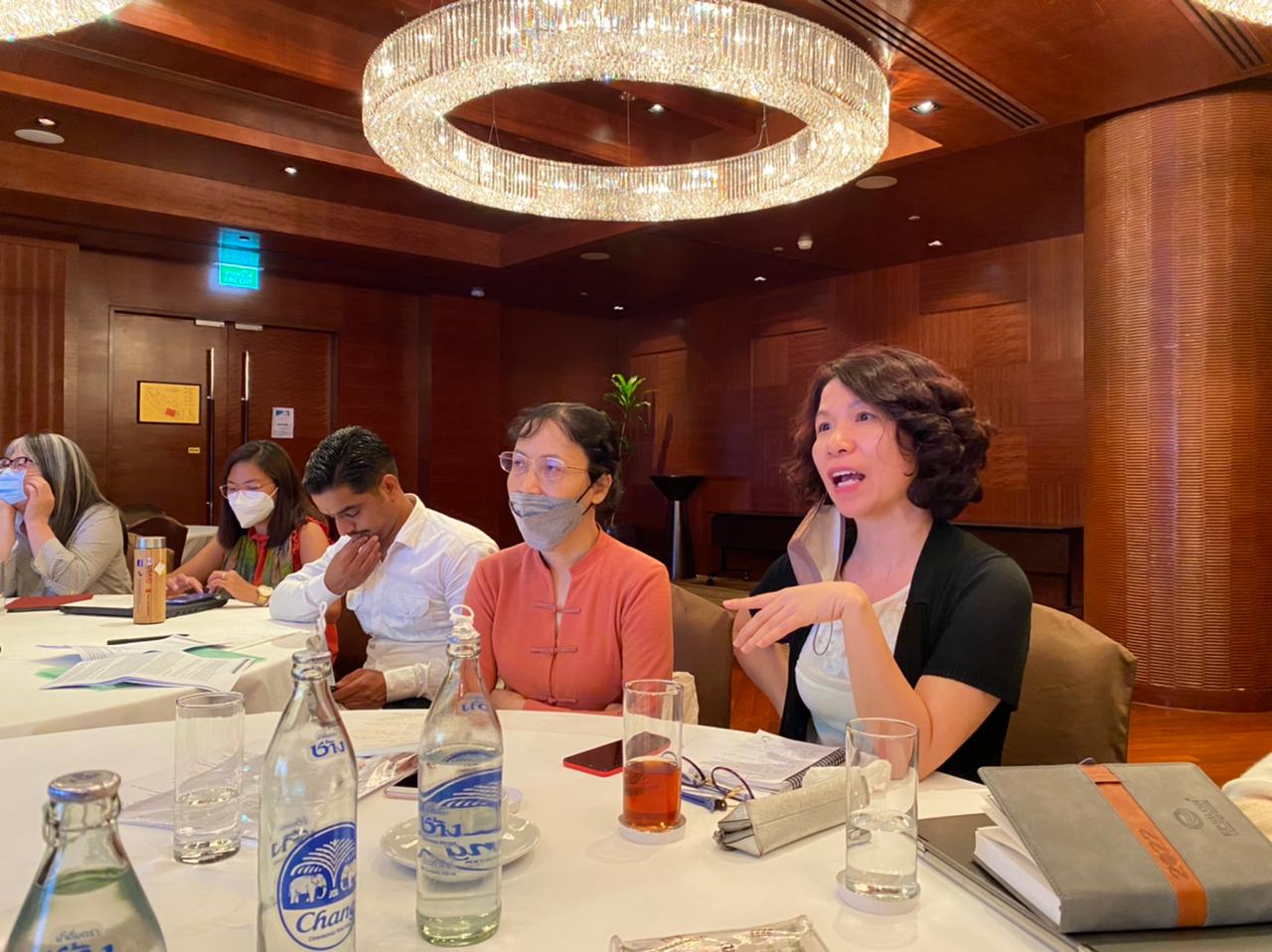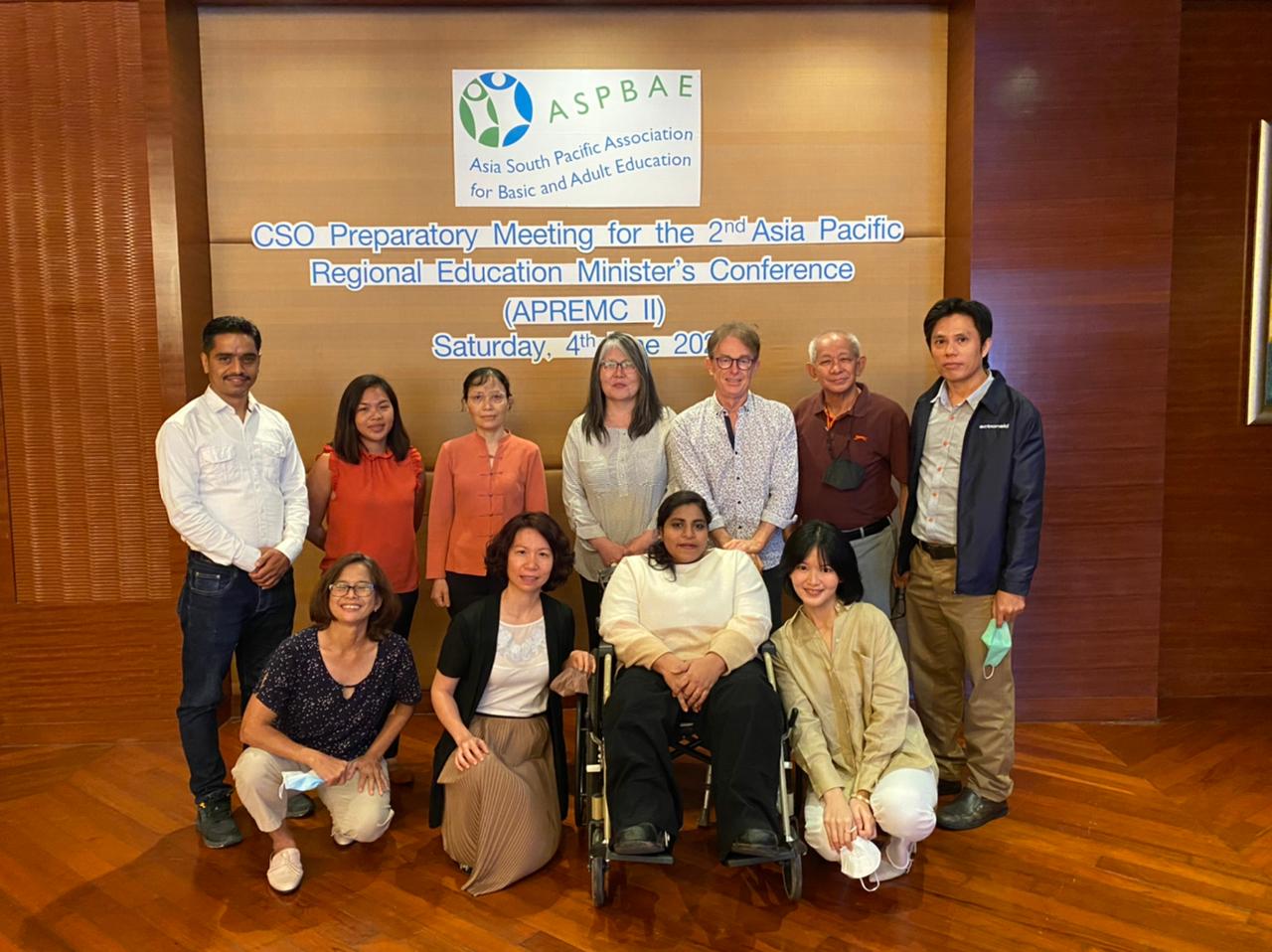Civil Society Preparatory Meeting for the 2nd Asia Pacific Regional Education Ministers’ Conference (APREMC II)

ASPBAE organised a face-to-face Civil Society Organisation (CSO) Preparatory Meeting for the 2nd Asia Pacific Regional Education Ministers Conference (APREMC II) on 4 June 2022 in Bangkok, Thailand.
The meeting aimed to gather ASPBAE members that have been invited as CSO delegates to review the draft CSO Statement for the APREMC II and strategise and prepare for their interventions as guided by this Statement. The first half of the meeting focused on the preparations for the APREMC II while the second half provided an opportunity to discuss preparations for the 2022 Civil Society Spotlight Reports on SDG 4 for the High-Level Political Forum (HLPF) this year, which will take place on 5-15 July 2022.
Representatives of national education coalitions from five countries participated in the APREMC II, including Kim Anh Nguyen and Thuy Nguyen of the Vietnam Association for Education for All (VAEFA), Reaksmey Hong of the NGO Education Partnership (NEP) Cambodia, Dilliram Subedi of the National Campaign for Education – Nepal (NCEN), Tungalag Dondogdulam of All for Education – Mongolia (AFE), and Alvelyn Berdan of E-Net Philippines, along with ASPBAE’s Regional Policy and Advocacy Coordinator, Cecilia (Thea) Soriano; Asia Pacific Education Out Loud (EOL) Regional Coordinator, Bernie Lovegrove; Lead Policy Analyst, Rene Raya; and Research and Advocacy Officer, Lae Santiago.

Thea shared updates on the APREMC II and presented the draft CSO Statement for APREMC II, which built on the discussions during the Virtual CSO Preparatory Meeting for the APREMC II held on 23 May 2022. The draft CSO Statement put forward civil society recommendations on the three key areas of the APREMC II, namely – (1) Learning recovery and addressing the learning crisis; (2) Transforming education systems, and (3) Increased and better investment in education and enablers in transformation.
What came out strongly during the discussions was the need to push for free and reliable digital technologies, protect public education systems, increase domestic resource mobilisation and Official Development Assistance (ODA), and update the curricula to match the learning needs of learners as well as employment opportunities. Others also emphasised “systems changing” to transform education, learning continuity plans to anticipate future crises, and the localisation of SDG 4 to call for increased financing and broader civil society engagement.
Bernie facilitated the strategising session and invited participants to reflect on what they hope to achieve in the APREMC II. Bernie asserted that civil society must continue to be proactive in giving voice to their concerns, such as leaving no one behind and affirming the principles of equity and inclusion in education. This session also saw an exchange of lessons learned from previous conferences and updates on the logistical and technical details of the event.
Rene and Lae led the latter part of the session on ‘Developing Civil Society Spotlight Reports on SDG 4 for the 2022 HLPF’. SDG 4 was first reviewed at the 2019 HLPF under the theme “Empowering People and Ensuring Inclusiveness and Equity.” It will be reviewed again in this year’s HLPF under the theme “Building back better from the coronavirus disease (COVID-19) while advancing the full implementation of the 2030 Agenda for Sustainable Development.” ASPBAE presented an overview of the 2022 HLPF and invited participants to identify and share the key education issues that they intend to raise in the Reports, as well as their recommendations. They also shared the draft outline for the Spotlight Reports.

Participants shared ways in which their Spotlight Reports have been used in their advocacy work. E-Net Philippines are preparing for the CSO Spotlight Reports and have had its initial meetings with its board and members, with the Philippines being one of the VNR countries for this year. NEP Cambodia presented their report to the Ministry of Education and the Ministry of Finance and used it to inform the government recovery plan for 2022-2024.
VAEFA finds the Spotlight Reports useful in supporting their inputs during consultations with the government Ministries and adding strategic value to their advocacy and organisational profile. AFE Mongolia echoed this and said that the Spotlight Reports are analytical pieces that can be used for many purposes. They also raised the key areas in education that they would like to put a spotlight on, including financing for education, disability-inclusive education, community-based learning, digital gaps in education, learning losses and assessments, and SDG 4 through a rights-based perspective, among others.
ASPBAE and representatives of national education coalitions actively participated in the APREMC II plenary and parallel sessions. APREMC II is an important milestone in delivering commitments to the Sustainable Development Goal 4/Education 2030+ in the Asia Pacific.